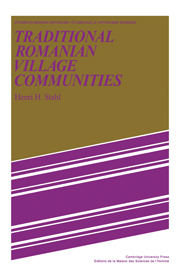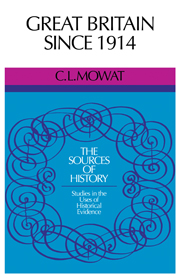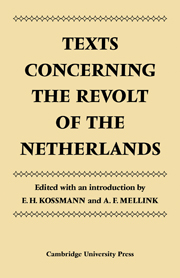Traditional Romanian Village Communities
The Transition from the Communal to the Capitalist Mode of Production in the Danube Region
£32.99
Part of Studies in Modern Capitalism
- Author: Henri H. Stahl
- Translators:
- Daniel Chirot
- Holley Coulter Chirot
- Date Published: October 2008
- availability: Available
- format: Paperback
- isbn: 9780521089111
£
32.99
Paperback
Looking for an inspection copy?
This title is not currently available on inspection
-
Professor Henri Stahl is one of Eastern Europe's leading authorities on peasant societies. For over thirty years he has studied peasant village communities in Romania, both in the field and from wide-ranging documentary sources. This book, one of Professor Stahl's major works, is based on this extensive research. The book is a study of the evolution of Romanian peasant society from the thirteenth century to the present, focusing particularly on the village communities of Wallachia and Moldavia, in which until quite recently communal villages still existed. Through a comparison of this type of village firstly with villages whose population was subjected to serfdom, and secondly with those which were free, but with private rather than communal property. Professor Stahl offers an interpretation of Romanian agrarian history. He argues that Romania moved from a communal form of social organization to a kind of tardy feudalism, provoked by the entry of capitalist market forces.
Customer reviews
Not yet reviewed
Be the first to review
Review was not posted due to profanity
×Product details
- Date Published: October 2008
- format: Paperback
- isbn: 9780521089111
- length: 240 pages
- dimensions: 229 x 152 x 14 mm
- weight: 0.36kg
- availability: Available
Table of Contents
Introduction. The international framework of the problem and its Romanian aspects:
1. The international framework of the problem
2. Hypotheses concerning the genesis of the Romanian feudal states
Part I. The internal life of two types of contemporary village communities: 'non-genealogical' and 'genealogical':
3. The free communities of the 'archaic' type
4. Free evolved communities
5. The former serf villages
Part II. The village communities of the peasants liable to corvée (eighteenth and nineteenth centuries):
6. The communities of corvée peasants
7. The economic life of the corvée villages
Part III. The first forms of tributary exploitation of the village communities:
8. Prior considerations on the problem of the feudal conquest of the villages
9. First forms of the seizure of the village communities
10. The conquest of the village communities by the boyar class
11. The great social crisis of serfdom
12. First sings of the failure of serfdom
Conclusions. Some theoretical considerations.
Sorry, this resource is locked
Please register or sign in to request access. If you are having problems accessing these resources please email [email protected]
Register Sign in» Proceed
You are now leaving the Cambridge University Press website. Your eBook purchase and download will be completed by our partner www.ebooks.com. Please see the permission section of the www.ebooks.com catalogue page for details of the print & copy limits on our eBooks.
Continue ×Are you sure you want to delete your account?
This cannot be undone.
Thank you for your feedback which will help us improve our service.
If you requested a response, we will make sure to get back to you shortly.
×













